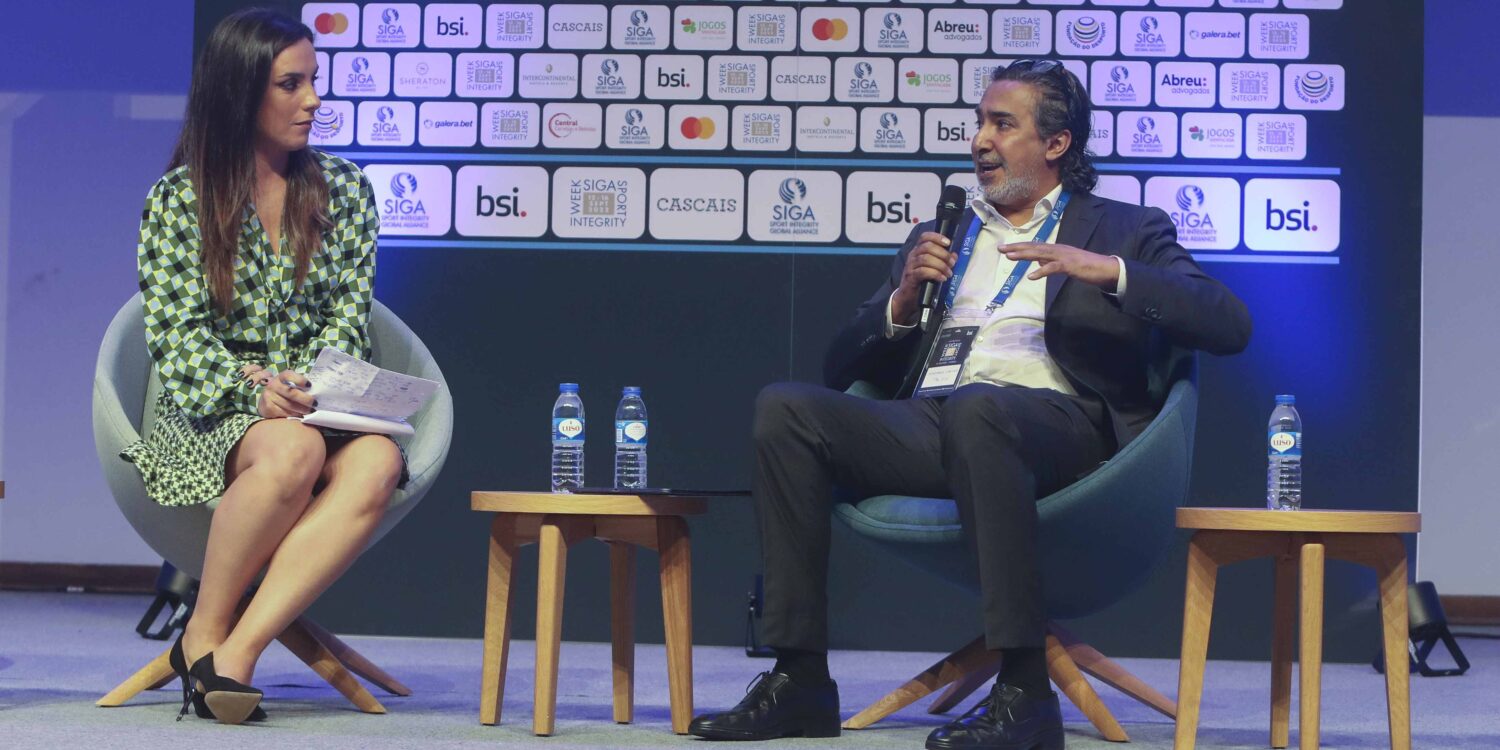Day three of Sport Integrity Week kicked off with the speakers of the first panel vouching for the SIGA Independent Rating and Verification System (SIRVS), presented by all as the silver bullet for the Sport Industry. By assessing the organisations level of compliance with SIGA Universal Standards on Sport Integrity, SIRVS provides global consistency. Frank Lee, Director, UK & Ireland, Product Certification, BSI, reinforced the relevance of the ratings in achieving global consistency internationally and across sports. After all, as Lee explained, the two stages processes is identical for a football club in Brazil and a Gymnastics club in Bangladesh.
The panel had representatives from two federations that have submitted to the SIRVS, although they are at different stages. The European Swimming League, represented in this discussion by its president António José Silva, will begin the second phase of the process in October. The European Rugby League has already finalised the process. David Butler, General Manager admitted that despite feeling “proud of the silver rating“, the organisation is now running for gold.
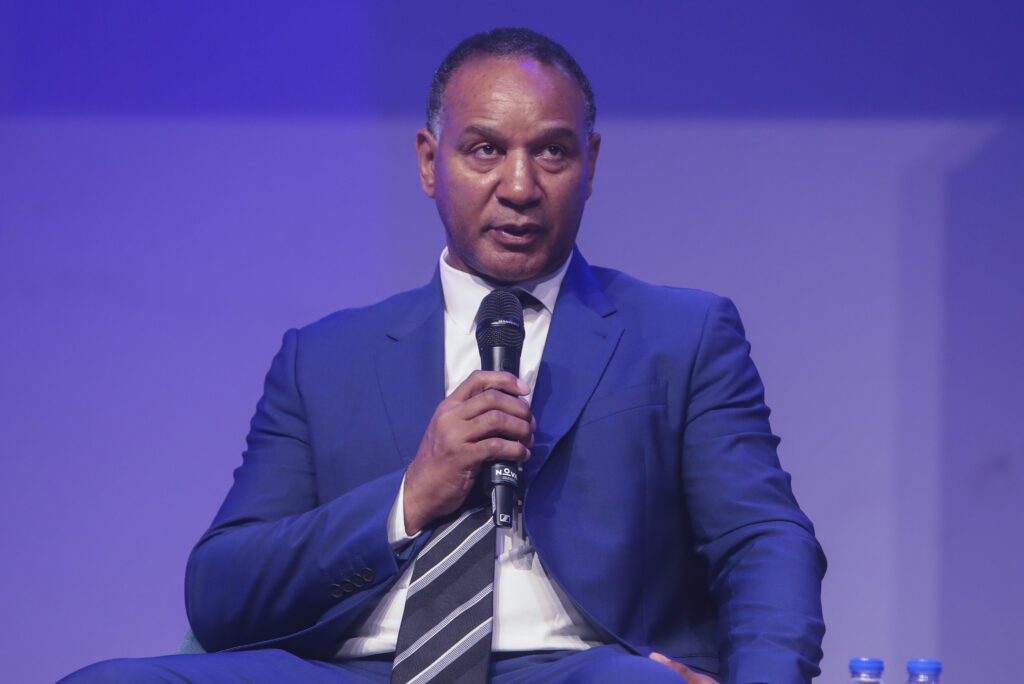
Gender diversity was another topic discussed, with Densign White IMMAF recognising the need to improve on that matter: “Right now, out of 14 people on the board, 3 are women. One day it will be 50/50. “.
Integrity in Sport was also waved in the words of Michael Robichaud, Mastercard: “Doing the wrong thing is more expensive that doing the right thing”.
After the panel “Accontability and Scrutiny in Sport means SIRVS”, Miguel Laranjeiro, president of the Portuguese Handball Federation expressed a strong idea: “The fight against match fixing is like climate change fight, we have to act now. We must save sport from what could kill it”.
GREAT POWER, GREAT RESPONSIBILITY
SIW2022 alignment led to a rich panel moderated by Kate Beavan, SIGA Council member. The topic was the sponsors’ increasing demand for Integrity in Sport. Haley Price, TATA Consultancy Services, told about the way her company promotes “running” campaigns to make its employees feel better about themselves#, and how “the new generations are more demanding about how associations choose their partners based on their attitudes and principles”. Clementine Painter, Adidas, addressed how brands must cooperate in order to “change lives” and how the company she represents works with non-for-profit organisations to fight gender inequality. Mastercard’s Michael Robichaud spoke about how the world of Sport still lags behind other areas in the way of something he considers to be “very important”: the concept of sustainability; and how Mastercard works under values related to equality and environmentalism, challenging its partners to do more than “secure the cheque”.
Aldo Kafie, from Octagon, spoke about the new way sponsors look at integrity, while Miguel Farinha, EY, ensured his organisation works “to make a better world”.
In this debate, it was also discussed how a sports club that aligns with the ideas of integrity can be more successful. The answer was unanimous: doing the right things will attract sponsors.
TRANSPARENCY ISSUES WORRY HANZAB
Mohamed Hanzab, Founder and Chairman, The ICSS, and Vice-Chair, SIGA took to the stage for a Keynote and a one-on-one interview with host Filipa Pereira, SIC. Hanzab delivered a speech based not on pessimism, rather in realism: he recognised the limitations of Asian football, with poor transparency and match-fixing problems associated with betting. Hanzab praised the cooperation that exists in Europe and Australia in the fight against match-fixing, and stressed the importance of cooperation with SIGA, given the growing interest of the sports world in talking about integrity in Sport, something that, he reminded, was almost impossible 10 years ago.
As the ICSS is the co-host of the next World Cup, Mohamed Hanzab said that one of the biggest challenges for November is managing the fans from the different countries to prevent possible aggressions, assuring that Qatar’s hospitality is excellent.
LANDMARK AGREEMENTS SIGNED
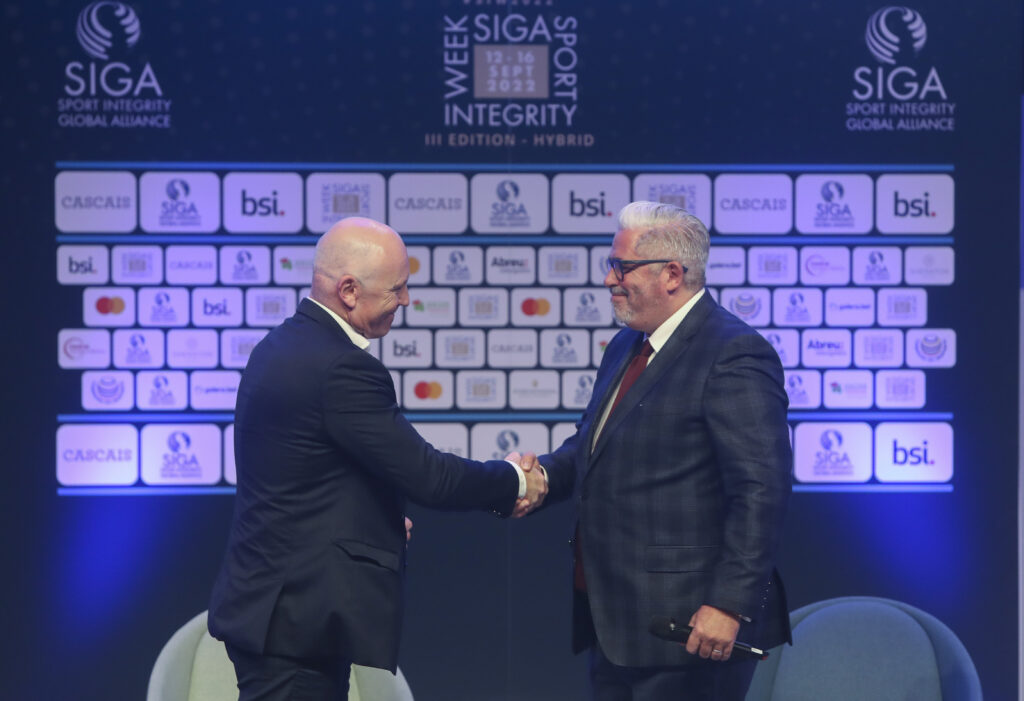
Adding to the mobilisation SIGA is celebrating during the Sport Integrity Week 2022, the third day of the event witnessed the signature of two more ground-breaking agreements. During the morning period, and pursuing a long term concern SIGA has been flagging, Emanuel Macedo de Medeiros and Glen Kilane, CEO, EBU Sports sealed a Memorandum of Understanding under which both organisations commit to extending cooperation in matters related to Intellectual Property and anti-piracy.
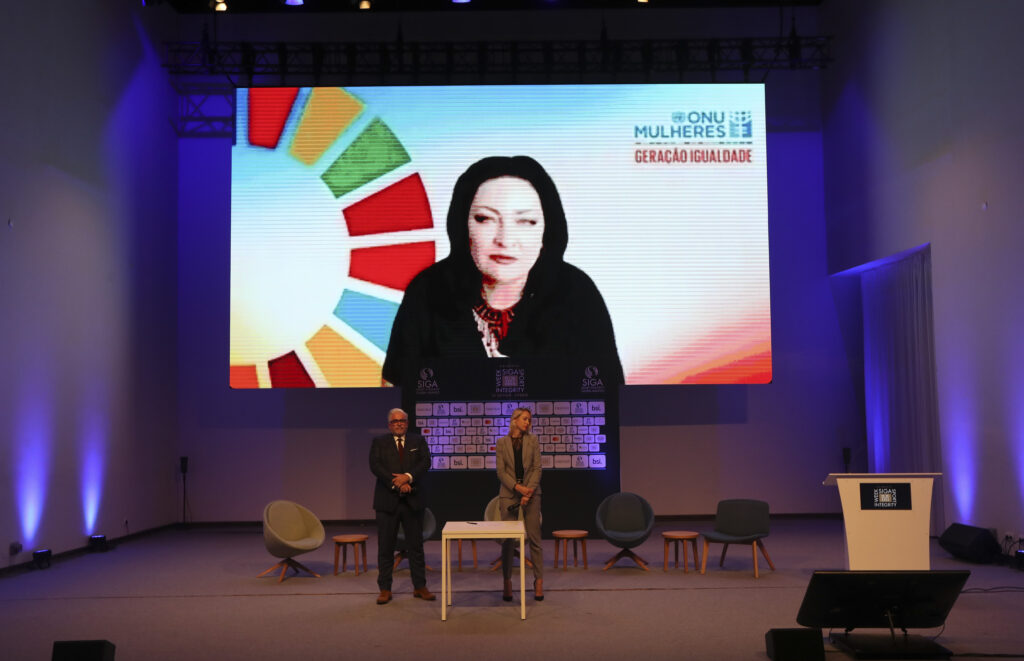
In the afternoon, it was time for the signing of a significant letter of intent between SIGA and UN Women.
“Until every woman has found her place in Sport, we cannot stay silent, we cannot turn a blind eye. Only 17.8 percent women occupy leading positions on the biggest sports organisations. Why are we handcuffed in this barriers?”, Emanuel Macedo de Medeiros flagged after Anastacia Divinskaya, Brazil representative, UN Women, ensuring UN welcomes the partnership with SIGA for “revitalizing commitment for gender equality in sport”.
Gabriela Geraldes Bastos, also from UN, urged for action, as “data shows that during puberty 50 per cent of girls drop out of sport, due to lack of support and of self-confidence”.
FIGHT FOR YOUR RIGHTS
Ricardo Henriques, partner Abreu Advogados, moderated the panel on IP rights, and welcomed on stage three experts. Grégoire Polad, Commercial Television and Video on Demand Services in Europe, spoke about the class action that this association has placed before the European Council to combat these television rights problems, as well as the problems that the evolution of technology have caused in the fight against intellectual property theft. Glen Kilane, from the European Broadcasting Union, showed how the protection of television rights is essential for the EBU, stressing that the value that television broadcasts have for sports associations cannot be underestimated. Kilane also addressed why there should be no distribution to third-party supporters, such as YouTube or Facebook, in order to protect the economic value of sports event rights. Mark Lichtenhein of the Sports Rights Owners Coalition dwelt on the SROC’s work in protecting intellectual rights, considering piracy as the “biggest and most existential problem” for this issue. Lichtenhein flagged the need for tools to bring down illegal streaming, as there are several legal issues that delay the fight against piracy, whose value is identified at around 28 billion euros – half of the worldwide value of streaming values.
MIND-BLOWING PANELS ON TECH AND FEMALE LEADERSHIP
SIW’s day 3 morning wouldn’t end without a mind-blowing panel on technology and innovation, and how they can drive integrity in Sport. Kevin Benedict, futurist at TATA consulting services, guided the conversation with Sandra Lopez, Microsoft, Daniel Hubert, INEXTO, Richard Ayers, Seven League, and Nadia Banks, Quintar,
Being an ode to the use of data in Sport and having been replicated in real life by clubs such as Brentford Football Club, moderator Kevin Benedict, used the movie Moneyball as the motto to launch the debate on the evolution of data usage in Sport. All the guests agreed on how data, when applied to athletes, can improve their performance. Richard Ayers, chairman of the Seven League, warned, however, that the development of data and the growth of its commercial value can amplify the audience’s experiences, but, in excess, it can affect our balance as a society.
The great technological evolution of recent years and which, according to Sandra Lopez of Microsoft, covid has accelerated, increasingly places a question mark over the future of Sport. Although innovation is welcome, especially, from the point of view of amplifying the interactive experience for fans, all the guests defend technology only as a tool to help professionals in each area, such as referees, rather than being a direct substitute. Sandra Lopez went further and expressed her concern, as she believes that the question should not be whether computers can do it, but whether they should do it.”
The vice president of the tech giant argues that the desire to have a better experience makes consumers able to give up on data privacy. Therefore, Lopez ensured that Microsoft defends that personal data should be considered a human-right.
Katie Simmonds was the moderator of SIW’s 10th panel, on Female leadership in Sport. The conversation focused on the stigmas that are experienced in the industry and the barriers that are waiting to be broken down to achieve equality.
Yvonne Nolan, General Counsel of World Rugby, explained how the procedures implemented by the organisation have increased female participation to almost 40% of all members. Jessica Berman, commissioner of the National Women’s Soccer League, revealed to be totally “for diversity”, not for its own sake, but because she believes that there is quality in all sectors of society. However, she also stated that unfortunately in the NWSL there is still a large minority of women in decision-making positions. The commissioner also mentioned the need for action, rather than what she describes as “raging enthusiasm”.
Turning to a more political side, Emine Bozkurt, member of International Alert Europe and former member of the European Parliament, talks about how, throughout her life, she has always experienced difficulties due to her origins and her gender. Yet, she has always managed to overcome the obstacles that have appeared in her life. She also talked about the need for political power to establish an agenda for equality. In her turn, Lorin Hamlin, from Under Armour, talks about how it is to work in a world mainly made up of men, and how it is to work with women’s sportswear, since women’s bioengineering is very different from men’s, and over the years there has been less development for women’s sportswear than for men’s equipment. Lorin calls, in her speech, for men to be allies in this fight against inequality, giving the example of Under Armour, where only two women are in management positions. Mary Davis, a professor at Yale University, talks about the relationship between fashion and Sport, having taught a course called “Female Athletes and Fashion in Sports”. The professor addresses how several female athletes who appear in the media manage to do so as what she describes as “a mission”, showing greater diversity and influencing the masses.
“It’s time to take action, so we don’t spend the next decade hashing out and discussing the same subjects over and over again.”
Sabrina Ibañez
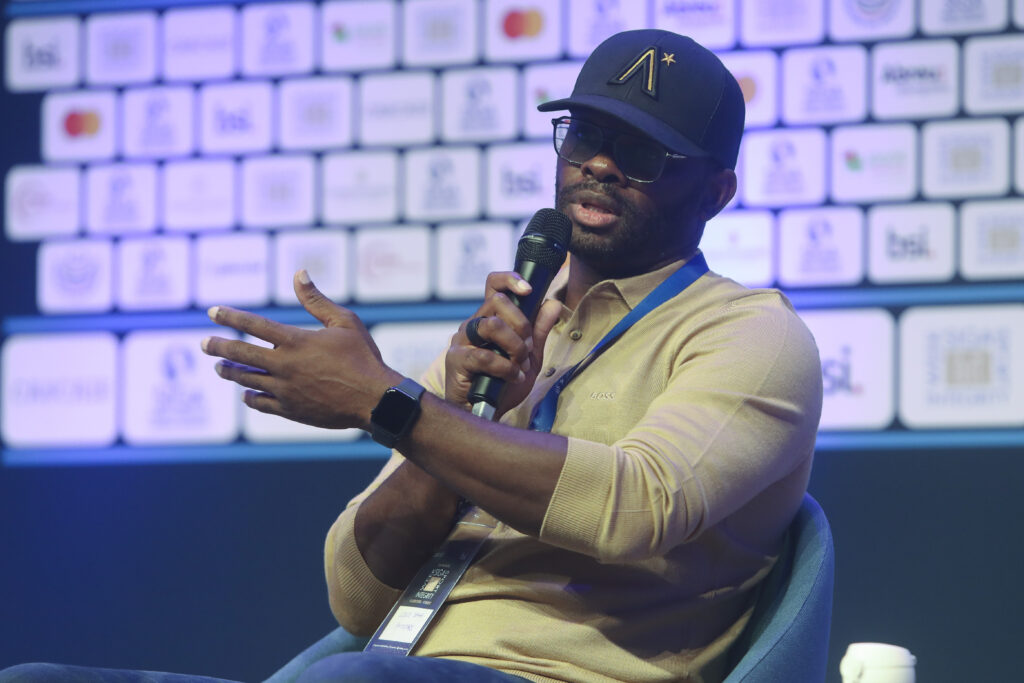
ATHLETE ACTIVISM: CHAMPIONING SPORT INTEGRITY
Throughout this week we have talked about all the elements that surround Sport, such as governance, copyright, betting, youth protection, etc. The last panel of day 3 was dedicated to athletes, and their roles on promoting integrity.
Louis Saha, former Manchester United and Everton player, among other to level clubs, warned of the need to change certain aspects in order to protect players. “They can be role models, the best example for generations, but we have to throw out the bad examples,” added the founder of Axis Stars, an agency that advises and manages players’ careers.
In the field of protecting athletes and advocating for social justice, Angela La Chica is one of the cornerstones, as the work of LaChica Sports stresses. Quarterback Colin Kaepernick’s removal from the NFL in 2017 for kneeling in support of victims of police violence was covered in this panel, as it was an example of LaChica’s work in advising athletes on what position to take, depending on whether they had guaranteed contracts or not. Joe Leavitt and Overtime are looking to start this counselling earlier in athletes’ lives, by developing teams in high school in Atlanta to teach young players aspects beyond the game itself such as financial security, nutrition or having a strong and sustained point of view.
This event was also mentioned as it is an example of the risk athletes take if they make their voices heard. Erica Wiebe, a multiple-time wrestling champion for Canada, acknowledges that “it’s a tough time to be a Canadian in the sport” given the current climate of reports of abuse, physical and psychological, in several Olympic sports. The athletes’ fear of reprisals combined with the defence of the abusers by the higher authorities means that there is no safe environment to report. That is why Erica, an athlete with so many achievements, had to take the lead and speak up for the hundreds of fellow athletes who do not have the security to do so.
Saha reinforced this point by saying that the only way to have a change is if the players unite around a plan. He flagged, however, that a good entourage is crucial, as some agents may be discouraging action, because it has no commercial value. The key idea coming out of this panel is that change is urgent to protect the athletes.
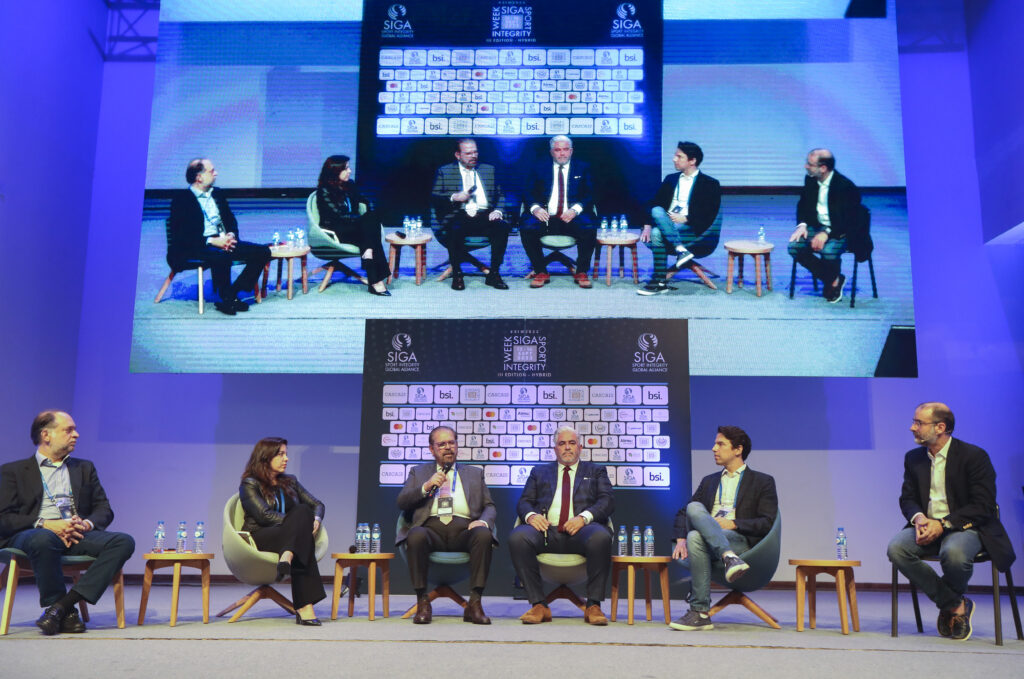
The last panel of the day was dedicated to the launch of SIGA LATIN AMERICA
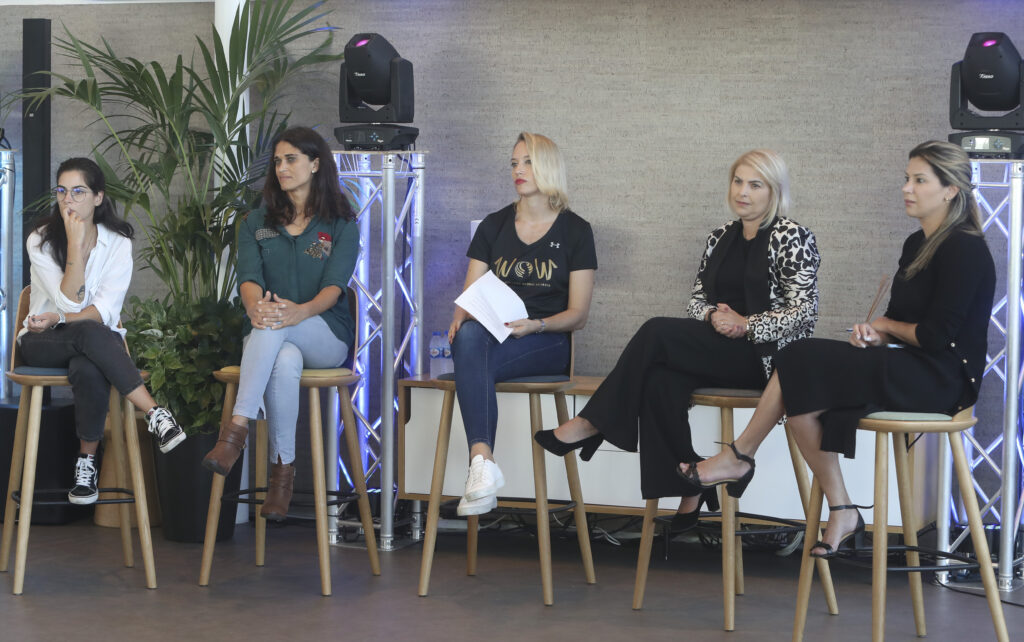
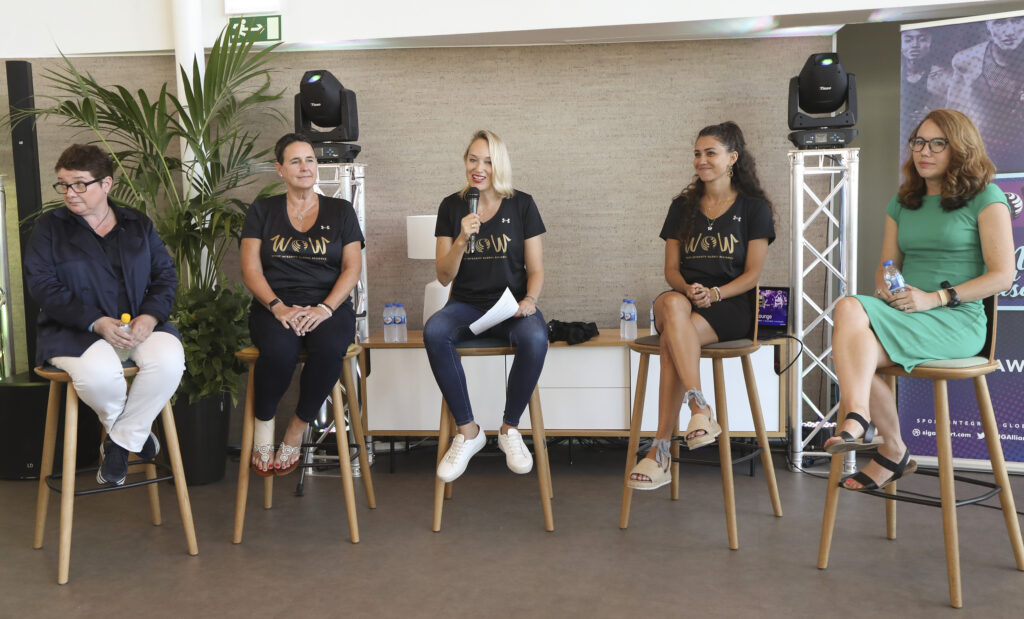
SIGAWow Sunset lounge allowed amazing networking
– THE END –
ABOUT SIGA
SIGA is the world´s leading organisation for Sports Integrity. Supported by more than 200 international multi-industry supporters, we are creating a whole new landscape for the global sports industry by promoting the implementation of the highest integrity standards and delivering independent global rating and certification for Sport.
Funded by its members, SIGA is the only organisation to bring together all key stakeholder groups – Sport, Government, International Organisations, Global Business and Civil Society – from every region in the world, around one critical, fundamental Cause: to foster greater Integrity throughout Sport.
SIGA is headquartered in Geneva, Switzerland, as a non for profit association, funded by its members, and comprises of the following continental subsidiaries: SIGA AMERICA, SIGA EUROPE and SIGA LATIN AMERICA.
Click on the hyperlinks for the list of SIGA Members and Committed Supporters and SIGA Partners.
For more information on SIGA, including its vision, mission and reform agenda, please refer to the website: www.siga-sport.com.
To contact SIGA, please email: [email protected].

